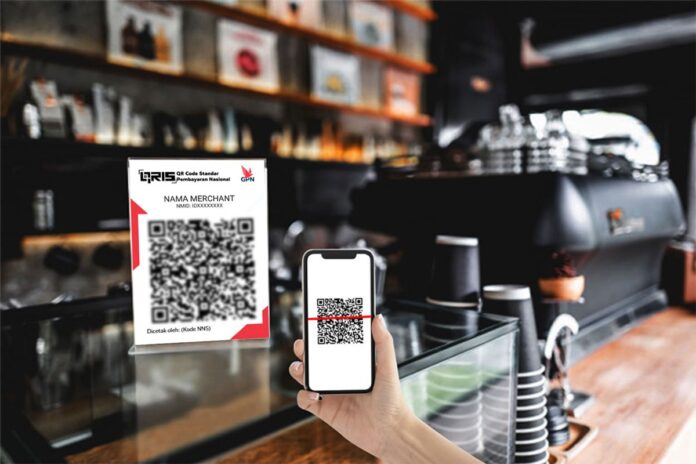In the bustling world of online gaming in Indonesia, convenience is king. Gamers don’t just crave immersive graphics or competitive match-ups; they want smooth, instant transactions that let them buy in-game currency, join tournaments, or pay for subscription perks without hopping through tedious steps. That’s precisely where the national standard payment system Quick Response Code Indonesia Standard (QRIS) comes into play.
As games grow in popularity and more local platforms emerge – for eample, the esports-friendly site ratu77 with its lively community and digital wallet integrations – the demand for payment methods that are instantly accepted, secure, and accessible has never been greater.
In this article, we’ll explore why QRIS is changing online gaming in Indonesia: what makes it special, how gaming platforms and players benefit, and what challenges remain.
What QRIS brings to gaming payments

To understand QRIS’s impact, we first must recognise what it does: it consolidates multiple payment apps, banks, and e-wallets under one unified QR code system.
Key features of QRIS for gamers and operators
Here are some of the standout functions and benefits that QRIS brings to the table:
- Universal acceptance across banks and wallets – where previously each e-wallet might use a different QR standard, QRIS enables one code to work for all.
- Instant real-time transactions – players can scan and pay and see the purchase processed almost immediately, reducing friction and abandoned carts.
- Lower barrier for smaller payments – many gamers make micropayments (in-game skins, coins, boosters) and QRIS handles these easily without card overheads.
- Increased accessibility for un- or under-banked segments – in Indonesia where credit card penetration is low, QRIS opens digital payment to many more people.
Did you know?
QRIS was launched by Bank Indonesia in 2019 to unify QR payments across the country.
For game platform operators, this means: fewer declined transactions, less reliance on international card-networks, and importantly, localised payment experience for Indonesian players.
Why online gaming platforms in Indonesia are adopting QRIS

Online gaming platforms across mobile, PC, and esports hubs are adopting QRIS for its simplicity and reach. Instead of forcing players to use foreign cards or complex transfers, QRIS lets them pay instantly through familiar local wallets like GoPay, OVO, or ShopeePay.
For operators, a single QRIS interface replaces multiple payment integrations, cutting setup time and technical costs. With local banks and wallets supported natively, both players and platforms enjoy smoother transactions, stronger trust, and better revenue performance.
Real-world impact: gamers, studios and revenue
When QRIS becomes the default payment method in a gaming ecosystem, measurable shifts happen. Here’s a table summarising typical before-and-after dynamics in Indonesian online gaming operations:
| Metric | Before QRIS adoption | After QRIS adoption |
|---|---|---|
| Payment drop-off rate | High – complex payment steps, non-local cards | Lower – one-click QR payment, familiar to users |
| Time to purchase activation | Longer – bank transfer clearance delays, foreign card issues | Shorter – scan to pay, near-instant top-up |
| Micro-transaction volume | Limited by friction | Increased – easier for gamers to make small purchases |
| Player trust & localisation | Moderate – foreign payment flows raise doubts | Stronger – local standard, local currency, local wallets |
| Operator integration burden | High – multiple payment systems | Reduced – unify under QRIS standard |
These shifts matter. For Indonesian gaming platforms, rising micro-transaction volume means better monetisation of freemium models. For gamers, it means they spend less time worrying about payment, and more time playing. Operators report smoother flows, fewer payment failures, and a localisation boost that resonates with the domestic market.
Challenges, and what needs to improve

While QRIS has made major strides, it is not a magic wand. There remain hurdles and areas for improvement.
- Cross-border gaming payments: Many international games or platforms still rely on credit cards or foreign payment rails. QRIS is localised, so integrating with global platforms may require additional steps.
- Refunds and chargebacks: Some QRIS implementations have limitations around refunds or transaction reversals, especially for digital goods.
- Awareness among smaller studios: Large operators may adopt QRIS quickly, but smaller indie studios or overseas titles may still default to card-based payments or international gateways.
- Technical consistency and user experience: As one reddit user put it:
The easiest way to use it is with an e-wallet… some warungs ask for additional service charge if you use QRIS.
Final thoughts
The integration of QRIS in online gaming in Indonesia isn’t a peripheral trend – it’s a foundational shift. It aligns payment methods with local behaviours, lowers entry barriers for gamers, and simplifies operations for platforms.
Also read: Secure payment system
While challenges remain, the momentum is undeniable. In Indonesia’s digital gaming scene, payments are no longer the gatekeeper to play: with QRIS, the game starts the moment you scan.




